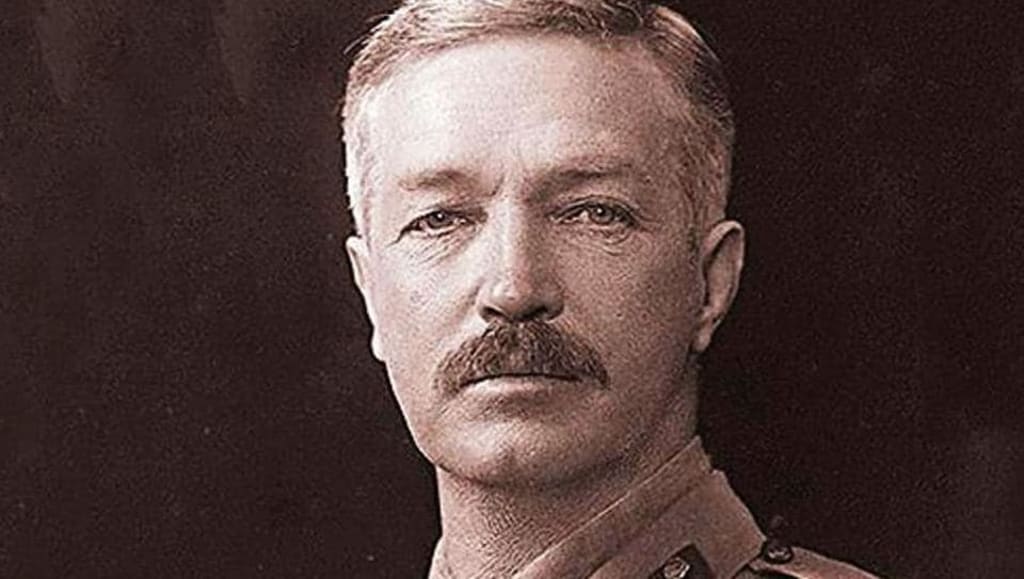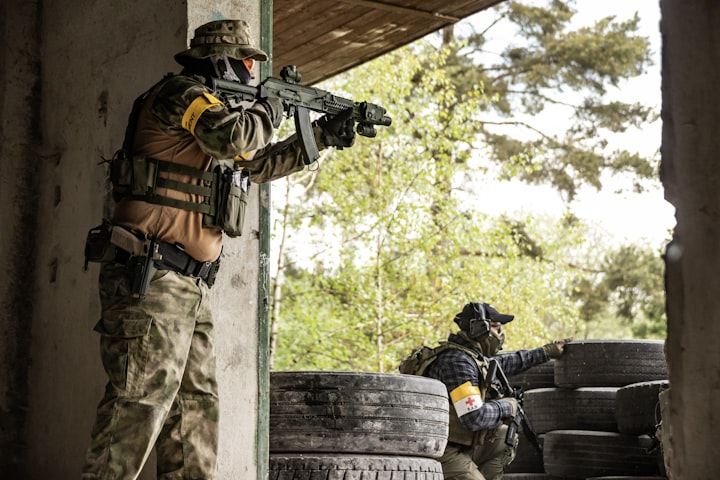The Dark Legacy of General Reginald Dyer
Unveiling the Cruelty of an Enigmatic Figure

General Reginald Dyer, often remembered as the orchestrator of one of the most infamous massacres in history, was a British military officer whose actions during the Jallianwala Bagh massacre in 1919 stained his name with blood forever. While history often immortalizes figures for their valor and leadership, Dyer's legacy is shrouded in darkness, marked by ruthless brutality and the oppression of the Indian people during British colonial rule.
Reginald Edward Harry Dyer was born on October 9, 1864, in Murree, British India, to a family with a military background. He followed the family tradition and joined the British Indian Army in 1885. His early career saw him serving in various regions of British India, gaining experience and rising through the ranks. However, it was during his tenure as the commanding officer in Amritsar that Dyer etched his name into the annals of history, albeit for all the wrong reasons.
The Jallianwala Bagh massacre of April 13, 1919, stands as a grotesque testament to Dyer's cruelty. On that fateful day, thousands of unarmed Indian civilians, including men, women, and children, had gathered at the Jallianwala Bagh public garden to peacefully protest against the oppressive Rowlatt Act, which had been implemented by the British colonial government. Without warning, Dyer, accompanied by his troops, ordered his soldiers to open fire on the crowd. The indiscriminate shooting continued for around ten minutes, leaving hundreds dead and thousands injured.
What transpired in the aftermath of the massacre revealed the depths of Dyer's callousness. He showed no remorse for his actions, instead justifying the massacre as a necessary measure to maintain order and uphold British authority. In a testimony before the Hunter Commission, which investigated the incident, Dyer showed a shocking lack of empathy, stating, "I think it quite possible that I could have dispersed the crowd without firing, but they would have come back again and laughed, and I would have made, what I consider, a fool of myself."
Dyer's actions and subsequent lack of remorse sparked outrage not only in India but also in Britain and around the world. The massacre at Jallianwala Bagh became a symbol of British oppression and fueled the Indian independence movement led by figures like Mahatma Gandhi. However, despite widespread condemnation, Dyer remained unrepentant, even earning praise from certain quarters in Britain for his supposed 'firmness' in dealing with colonial subjects.
Beyond the Jallianwala Bagh massacre, Dyer's tenure in India was marked by a pattern of repression and brutality. He endorsed draconian measures to quell dissent and maintain British control, including censorship of the press, arbitrary arrests, and the use of excessive force against civilians. Under his command, countless innocent lives were lost, and the very fabric of Indian society was torn apart by British policies of divide and rule.
Dyer's cruelty extended beyond his professional life into his personal conduct. He was known for his racist and supremacist beliefs, viewing Indians as inferior beings and treating them with contempt. His disdain for the Indian people was evident in his actions, whether it was the brutal crackdown on peaceful protesters or the dehumanizing treatment of those under his command.
Despite his reprehensible actions, Dyer faced little accountability from the British authorities. While he was censured by the British government and forced to retire from military service, he was never brought to trial for his crimes. This lack of justice only served to deepen the wounds inflicted by his tyranny and further fueled the flames of resentment against British rule in India.
In the years following his retirement, Dyer lived in relative obscurity, shunned by many in Britain and vilified by the Indian people. He passed away on July 23, 1927, leaving behind a legacy tainted by bloodshed and oppression. While some may argue that Dyer was a product of his time, it is essential to recognize that his actions were not merely a reflection of the prevailing attitudes of the era but a deliberate choice to wield power through fear and violence.
The legacy of General Reginald Dyer serves as a grim reminder of the horrors of colonialism and the inhumanity that can arise when absolute power is placed in the hands of the ruthless. His name will forever be associated with the brutality of the Jallianwala Bagh massacre, a stain on the pages of history that serves as a testament to the resilience of the human spirit in the face of oppression. As we reflect on his life and deeds, let us never forget the suffering inflicted by his hand and strive to ensure that such atrocities are never repeated.
About the Creator
Sahil Lathwal
I'm Sahil, a passionate writer. My voice weaves stories, emotions, and melodies into an enchanting tapestry. Welcome to my world of creativity and expression. 🎶📝🎤





Comments
There are no comments for this story
Be the first to respond and start the conversation.